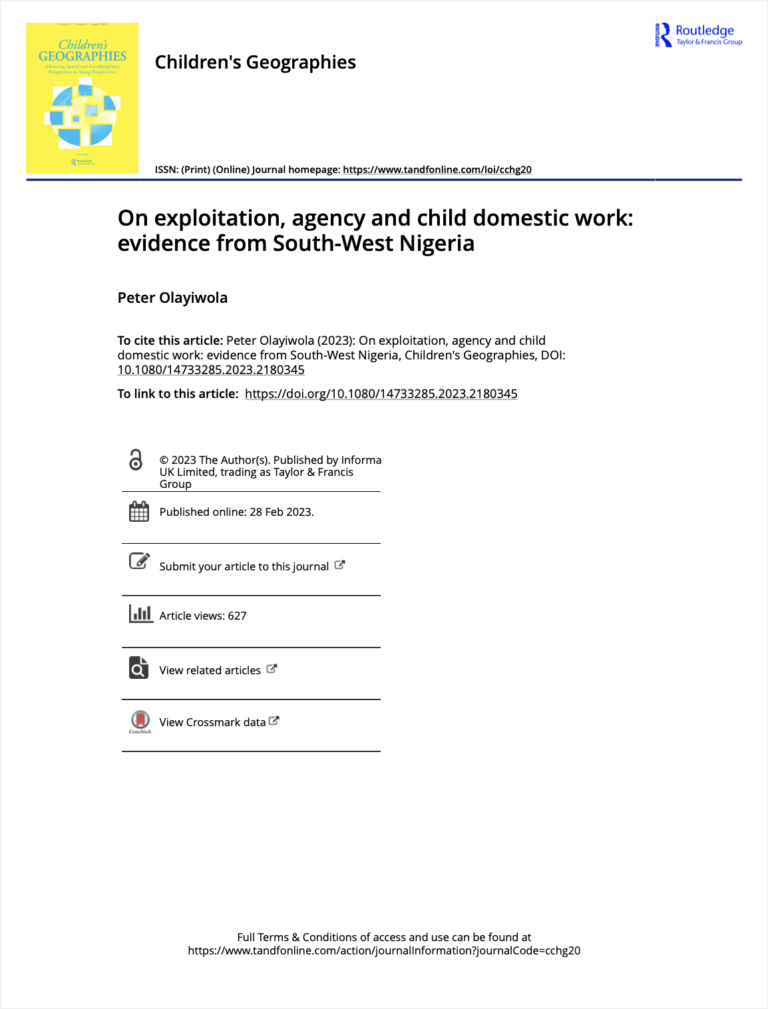The engagement of children in domestic work in third-party households is mostly conceived as a decision that benefits adult actors – employers, intermediaries and/or parents – at the expense of young people. Thus, child domestic workers are often depicted as victims of different kinds of exploitation – ranging from the nature of their recruitment to the work they do; and the conditions under which the work is done. This popular representation of children as ‘helpless victims’, however, undermines working children’s capacity to navigate the complexities that surround their living and working situations. Based on primary data gathered from fieldwork in South-West Nigeria, this paper examines how, with limited options, child domestic workers defy the victimhood narrative. It argues that even in the face of severe constraints, child domestic workers still find ways to exercise their agency. It concludes by highlighting the complexity of childhood work experiences; arguing for a more nuanced understanding of the same; and the need to rethink the frameworks and/ or support networks for child domestic workers.

